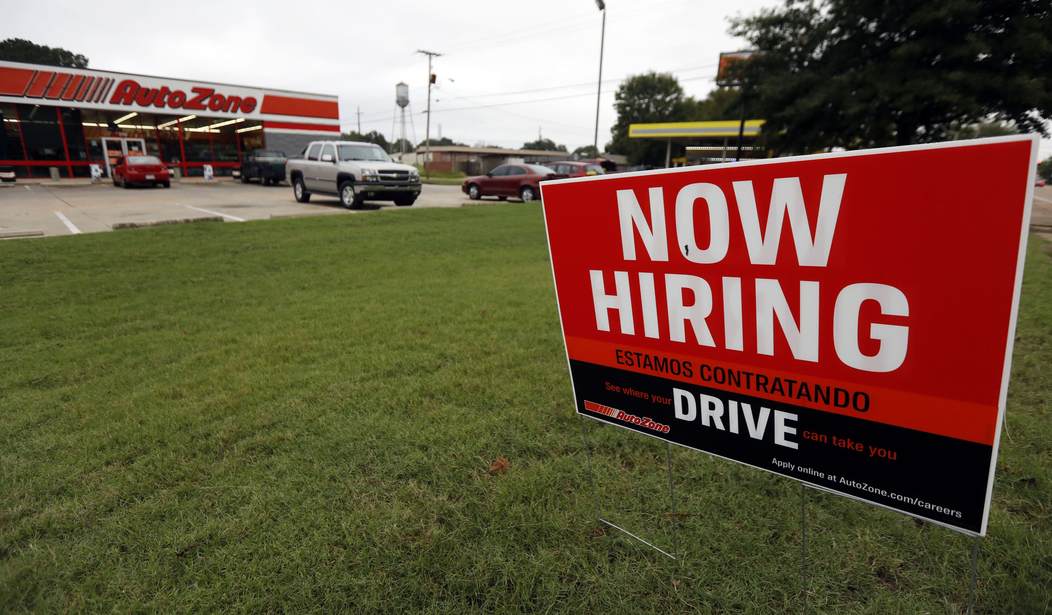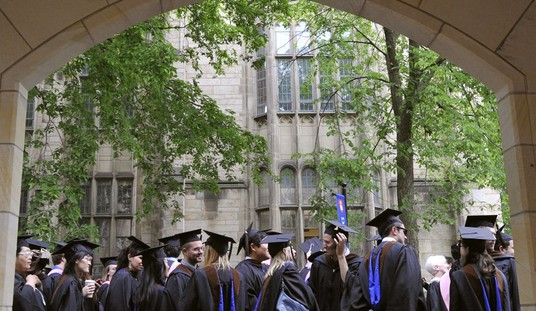Where have all the workers gone? Employers have asked that all year, and rather than improve, the situation has gotten worse. September walk-outs set a new record with 4.4 million American workers quitting, breaking a record set the previous month of 4.3 million in what people are calling the “Great Resignation”:
A record 4.4 million Americans quit their jobs in September, as job openings remained near record levels according to federal data, a sign of how imbalances in the labor market continue to complicate the economic recovery 20 months into the pandemic.
Those numbers are up from August, when 4.3 million people who quit their jobs in August — about 2.9 percent of the workforce. …
In September, when the delta variant of the coronavirus was nearing its peak, child care and other pressures forced many employees to rethink their daily routine. Many other workers, meanwhile, were lured to other jobs because of better pay and benefits elsewhere as employers became desperate to fill openings.
The August data, for example, showed that workers in more rural areas quit at a higher rate in part because they had more leverage to demand better pay.
That prompts the question: Is this a Great Resignation or more of a Great Migration? The BLS chart on “quits” shared by Washington Post economics reporter Heather Long is indeed dramatic:
Just In: A record 4.4 million Americans quit their jobs in September 2021.
So far this year, 34.5 million Americans have quit — millions more than anything ever seen before.
(Next closest was 2019 when 31.7 million quit Jan-Sept).The Great Resignation is PICKING UP speed pic.twitter.com/bSgkI9P6qk
— Heather Long (@byHeatherLong) November 12, 2021
That is dramatic, but it’s not impacting the overall employment situation in the US. Here’s the same time period charting non-farm payrolls, for instance:

And the same time period charting the labor force level:

Despite the “Great Resignation,” we have gained nearly 1.3 million in the labor force this year (while still 3 million below its pre-pandemic level). We have recovered 6 million jobs this year as well, while still 4 million or so short of the pre-pandemic level, and that’s without accounting for population growth. There hasn’t been a “great resignation” in terms of quitting the working world.
However, there has been an enormous amount of churn in employment. That is most likely because the shutdowns destroyed long-existing jobs, and the reopening recreated them without an attached payroll force firmly in place. That created a lot of room for short-term upward mobility, and labor shortages created by perverse benefit incentives forced employers to improve compensation markedly for them. That is one reason why we are seeing wage gains, as well as one driver for overall inflation.
In that sense, this is less a Great Resignation than it is a big game of musical chairs. It’s a seller’s market in the labor force at the moment, but that’s almost certainly a temporary phenomenon. Inflation itself is likely to curtail opportunities for instant-upward mobility, but so will interest rate hikes and further regulation such as vaccine mandates when they come into force. The supply-chain crisis will likely put a damper on it as well to the extent that a lack of supply will diminish staffing needs, reducing the leverage workers will have to drive compensation increases.
With all that said, however, it’s curious to see this much churn as late as September. That was when the last of the perverse incentives for remaining out of the workforce expired. October’s data won’t be seen for a few weeks, but it will be very interesting to see whether the Great Resignation continued into last month — or whether that was the month that the music largely stopped and the chairs remained filled.
Update: An interesting data point here that may tend to support my hypothesis:
You might object to this comparison but I like it — transportation/warehousing job openings vs manufacturing quits: pic.twitter.com/sQfu4BoQVD
— Conor Sen (@conorsen) November 12, 2021
As these jobs open up, quits largely correlate to them. I suspect that’s what has happened this year, but that the disruptions and pent-up demand made it necessary to flood the zone with job openings — and the spike in quits are a correlative reaction to that.








Join the conversation as a VIP Member